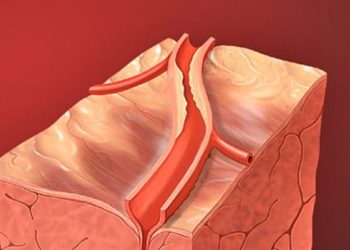Prognostic messages for cerebral palsy developed from a systematic review of the literature
Image: PD/USNavy
Key findings:
- The evidence regarding co-occurring impairments in children with cerebral palsy was summarized into concise clinical prognostic messages for parents
- To name a few, 3 in 4 children were in pain, 1 in 2 had an intellectual disability, 1 in 3 could not walk, and 1 in 4 could not talk
Primer: Cerebral palsy occurs in approximately 0.3% of births, making it the most common physical disability in childhood. By definition, it describes a heterogenous group of non-progressive clinical symptoms involving motor and postural dysfunction causing activity limitation due to disturbances of the developing brain. Children with cerebral palsy often have other problems, including cognitive issues, swallowing concerns, and seizures. It is expected that parents of children with cerebral palsy will ask pediatricians about common prognostic information about these functional limitations. Research, however, has shown that parents of children with cerebral palsy are dissatisfied with clinicians’ communication of this information.
For further reading, please see the following articles:
- Mutch L, Alberman E, Hagberg B, et al. Cerebral palsy epidemiology: Where are we now and where are we going? Developmental Medicine & Child Neurology 1992;34(6):547-551.
- Palisano R, Rosenbaum P, Walter S, et al. Development and reliability of a system to classify gross motor function in children with cerebral palsy. Developmental Medicine & Child Neurology 1997;39(4):214-223.
This [systematic review] study: The objective of the study was to systematically review the evidence with regards to co-occurring impairments, diseases, and functional limitations in cerebral palsy. The goal was to ultimately develop concise and parent-friendly prognostic messages. A total of 30 observational studies met the inclusion criteria required for meta-analysis, with >97% of the studies being the highest level according to the Oxford 2011 Levels of Evidence. Limitations of the study include a lack of data from developing countries and publication bias of the available literature. The following prognostic messages were developed from the findings of the study:
- 3 in 4 were in pain;
- 1 in 2 had an intellectual disorder;
- 1 in 3 could not walk/had a behaviour disorder;
- 1 in 4 could not talk/had epilepsy/had bladder control problems;
- 1 in 5 dribbled/had a sleep disorder;
- 1 in 10 were blind;
- 1 in 15 were tube-fed; and
- 1 in 25 were deaf.
In sum: Succinct prognostic messages can indeed be communicated to parents about their children with cerebral palsy. Using this systematic review on the co-occurring impairments, diseases, and functional impairments of children with cerebral palsy, clinicians can provide evidence-based answers to parents’ common questions.
Cerebral palsy is a classic example of a disease that affects multiple domains of childhood development and understandably causes increased anxiety in parents. Additionally, although it is a non-progressive disease, it does not uniformly affect children the same way, and functional limitations may change throughout the course of their lifespan. As a means of improving the relationship between clinicians and their patients’ families, developing prognostic messages based on robust evidence may allow clinicians to more comfortably communicate this commonly sought out information.
Written by [GL] and [AC]
© 2012 2minutemedicine.com. All rights reserved. No works may be reproduced without written consent from 2minutemedicine.com. DISCLAIMER: Posts are not medical advice and are not intended as such. Please see a healthcare professional if you seek medical advice.





